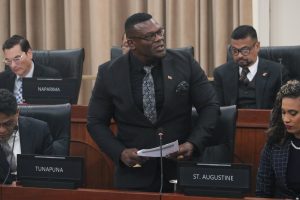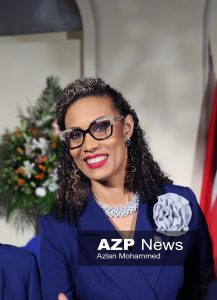THE Oxford Dictionary contains full entries for 171,476 words. Experts in linguistics agree that inclusive of slang and cultural vocabulary (you won’t see Cunumunu in the Oxford dictionary) there are currently close to one million words in the English language.The average adult English speaker knows and over his lifespan will use, between 20,000 and 30,000 words.
Words, be they simple or complicated, are truly remarkable. Far beyond being a tool of communication, the words we use can also conjure strong emotional responses. There are words that when used can provoke a sense of safety, calm, happiness, anger and some words, for example “moist,” instantly triggers a blood crawling sensation of disgust.
With a plethora of vocabulary at our disposal and the knowledge that a single word or phrase can influence emotion, we need to learn to choose our words wisely, especially if these words are being directed to the public.
The words and phrases being used by politicians, activists and national figures have been getting to me lately. I understand we live in a verbally colourful society, but sometimes I wonder if we realise how the words and phrases we use affect individuals and the national psyche.
A word that our politicians love to throw around with reckless abandon regarding alleged corruption is “rape.”
Most recently our Prime Minister Dr Keith Rowley described the awarding of a contract to build the Solomon Hochoy Highway Extension to Point Fortin project, as “the worst rape I have ever seen on the people of Trinidad and Tobago.”
This wasn’t the first time he used the R word, in 2014 as leader of the Opposition he called the proposed construction of the Beetham Water Recycling Plant as rape of the treasury. Adding he believed the People’s Partnership Government had, “made a career of raping the Treasury of T&T.”
In 2015, our Minister of Finance Colm Imbert described the awarding of CEPEP contracts by the former People’s Partnership as “rape of Treasury.”
Can we not find another word? The act of rape is perhaps the most horrific experience a human being can have. It is dehumanising and leaves its victims both physically and psychologically violated. Using the word can trigger serious emotional distress for its victims.
Framing the word rape in political dialogue to describe financial misconduct, undermines the emotional weight that word carries. It turns it into a joke, an insult, versus to truly horrendous act against another human being.
Having our nation’s leaders use it in such a nonchalant way is insensitive and bothersome. I get they are going for shock value, but it’s tasteless and classless. We get it, corruption is serious, no one is doubting that, but please find another word.
Another use of language that irks me, is this trend of calling T&T a “Banana Republic” or a “S…hole.” Listen, I completely understand that our country is a little backwards and yes, a lot needs to be done, because a lot is wrong, but when people are told again and again, they live in “S…hole” it doesn’t really help motivate them to change. In fact, it often does the opposite.
Being told repeatedly we live in a flaming garbage dump of country robs us of national pride. By constantly focusing on what is wrong, we don’t see what is good. If we cannot recognise the positive elements around us, we do nothing to protect or enhance them. Instead, we accept we live in a trash can, and submit to the despair around us.
If you are trying to inspire national pride or induce positive change, you need balance. You need to give people a good worth fighting for and protecting. You need to inspire, rather than criticis e.
I know we live in a society fueled by picong and wild storytelling, but in expressing our thoughts and facts we must be cognizant of the language we use.
Words are incredibly powerful; they carry an immense amount of influence. It is our responsibility to use our words in meaningful, impactful ways that do no harm and inspire strength and unity among those we address.
![]()














